






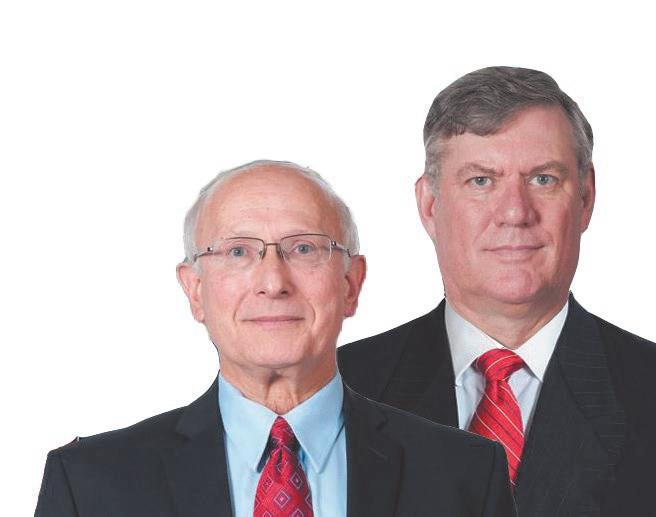











Helping people with cancer and their caregivers navigate the cancer journey with confidence.
a new patient navigation support one support.
With ACS CARES™, you can:

you or someone you love has been diagnosed with cancer, deciding what’s next can be overwhelming. The American Cancer Society can help with ACS CARES™ (Community Access to Resources, Education, and Support), new patient navigation support program that connects people with quality curated information and one-onsupport.
someone you love has been diagnosed with cancer, deciding what’s next can be overwhelming. The Cancer Society can help with ACS CARES™ (Community Access to Resources, Education, and Support), patient navigation support program that connects people with quality curated information and one-onsupport.
If you or someone you love has been diagnosed with cancer, deciding what’s next can be overwhelming. The American Cancer Society can help with ACS CARES™ (Community Access to Resources, Education, and Support), a new patient navigation support program that connects people with quality curated information and one-onone support.
Access personalized, quality new information becomes
Connect one-on-one with diagnosis, location, military
If you or someone you love has been diagnosed with cancer, deciding what’s next can be overwhelming. The American Cancer Society can help with ACS CARES™ (Community Access to Resources, Education, and Support), a new patient navigation support program that connects people with quality curated information and one-on-one support.
ACS CARES™, you can:
CARES™, you can:
With ACS CARES™, you can:
With ACS CARES™, you can:
Helping people with cancer and their caregivers navigate the cancer journey
Get reliable information on transportation, dependent Speak to American Cancer 365 days a year.
Access personalized, quality cancer-related information that updates as you age, your situation changes, or new information becomes available.
personalized, quality cancer-related information that updates as you age, your situation changes, or information becomes available.
• Access personalized, quality cancer-related information that updates as you age, your situation changes, or new information becomes available.
Access personalized, quality cancer-related information that updates as you age, your situation changes, or new information becomes available.
Connect one-on-one with trained ACS volunteers who match your shared cancer lived experiences including diagnosis, location, military status, race, ethnicity, and others.
one-on-one with trained ACS volunteers who match your shared cancer lived experiences including diagnosis, location, military status, race, ethnicity, and others. reliable information on how to address important topics such as emotional health, finances, transportation, dependent support and more.
Connect one-on-one with trained ACS volunteers who match your shared cancer lived experiences including diagnosis, location, military status, race, ethnicity, and others.
Get reliable information on how to address important topics such as emotional health, finances, transportation, dependent support and more.
If you or someone you love has been diagnosed with cancer, deciding what’s next can be overwhelming. The American Cancer Society can help with ACS CARES™ (Community Access to Resources, Education, and Support), a new patient navigation support program that connects people with quality curated information and one-onone support.
• Connect one-on-one with trained ACS volunteers who match your shared cancer lived experiences including diagnosis, location, military status, race, ethnicity, and others.
Get reliable information on how to address important topics such as emotional health, finances, transportation, dependent support and more.
• Get reliable information on how to address important topics such as emotional health, finances, transportation, dependent support and more.
Speak to American Cancer Society cancer information specialists when you have questions day or night, 365 days a year.
to American Cancer Society cancer information specialists when you have questions day or night, days a year.
With ACS CARES™, you can:
Speak to American Cancer Society cancer information specialists when you have questions day or night, 365 days a year.
• Speak to American Cancer Society cancer information specialists when you have questions day or night, 365 days a year.
Access personalized, quality cancer-related information that updates as you age, your situation changes, or new information becomes available.
Connect one-on-one with trained ACS volunteers who match your shared cancer lived experiences including diagnosis, location, military status, race, ethnicity, and others.
Get reliable information on how to address important topics such as emotional health, finances, transportation, dependent support and more.
Digital app for easy access to tailored information and resources — available anytime and anywhere.
Digital app for easy access to tailored information and resources — available anytime and anywhere.
Digital app for easy access to tailored information and resources — available anytime and anywhere.

or
24/7 access to support from caring, trained ACS staff who connect people to resources and information over the phone.
24/7 access to support from caring, trained ACS staff who connect people to resources and information over the phone.
Download the ACS CARES™ app today to get started: for easy access to information and — available anytime anywhere.
Speak to American Cancer Society cancer information specialists when you have questions day or night, 365 days a year.
24/7 access to support from caring, trained ACS staff who connect people to resources and information over the phone.
24/7 access to support from caring, trained ACS staff who connect people to resources and information over the phone.
Trained ACS volunteers who provide non-clinical virtual support and in-person support in clinics.
Trained ACS volunteers who provide non-clinical virtual support and in-person support in clinics.*
Trained ACS volunteers who provide non-clinical virtual support and in-person support in clinics.*
Download the ACS CARES™ cancer.org
Trained ACS volunteers who provide non-clinical virtual support and in-person support in clinics.*
up your profile and begin using the app. Now available in English and Spanish.

Download the ACS CARES™ app today to get started:
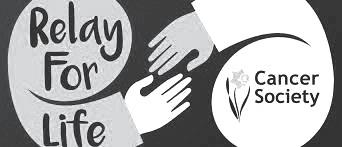
to download the app for iOS or Android devices.
to download the app for iOS or Android devices.
to download the app for iOS or Android devices.
Set up your profile and begin using the app. Now available in English and Spanish.
Set up your profile and begin using the app. Now available in English and Spanish.
Set up your profile and begin using the app. Now available in English and Spanish.

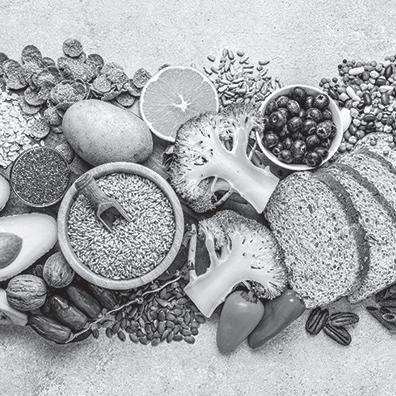
Cancer is a prolific group of diseases that can affect any area of the body. Although many cancers can be successfully treated, cancer avoidance is undeniably preferable. There is no way to completely prevent a cancer diagnosis, but certain foods may help to reduce your risk for the disease.
According to MD Anderson Cancer Center, cancer-fighting foods are plant-based items
that are rich in phytochemicals, which also are called phytonutrients. UC Davis Nutrition Department says phytochemicals are bioactive compounds found in vegetables, cereal grains and plantbased beverages like tea. Researchers have found phytochemicals can protect humans from environmental toxins and metabolic processes that can lead to chronic diseases, such as cancer and heart disease. Polyphenols are good examples of phytochemicals.
Health experts recommend packing every meal with healthy and nutritious foods that include plenty of vegetables, whole grains, fruits, and beans. MDACC recommends filling at least two-thirds of a plate with these healthy options. The remaining one-third of the meal should come from lean meat, fish or plant-based proteins and nuts/seeds. It also is important to limit foods that may increase cancer risk, including sugar-sweetened drinks and foods, processed meats, red meat, and alcohol.
When revamping diets to help reduce cancer risk, these heavy hitters should be included:
• Berries
• Broccoli
• Brussels sprouts
• Cauliflower
• Edamame
• Eggs or egg substitute
• Fish
• Green or white tea
• Grapes
• Leafy greens
• Lean chicken
• Lentils and other legumes/beans
• Oatmeal
• Oranges
• Quinoa
• Sweet potatoes
• Tomatoes
• Whole grains, including brown rice
Making smart food choices can keep a person healthy and may reduce the risk of cancer.
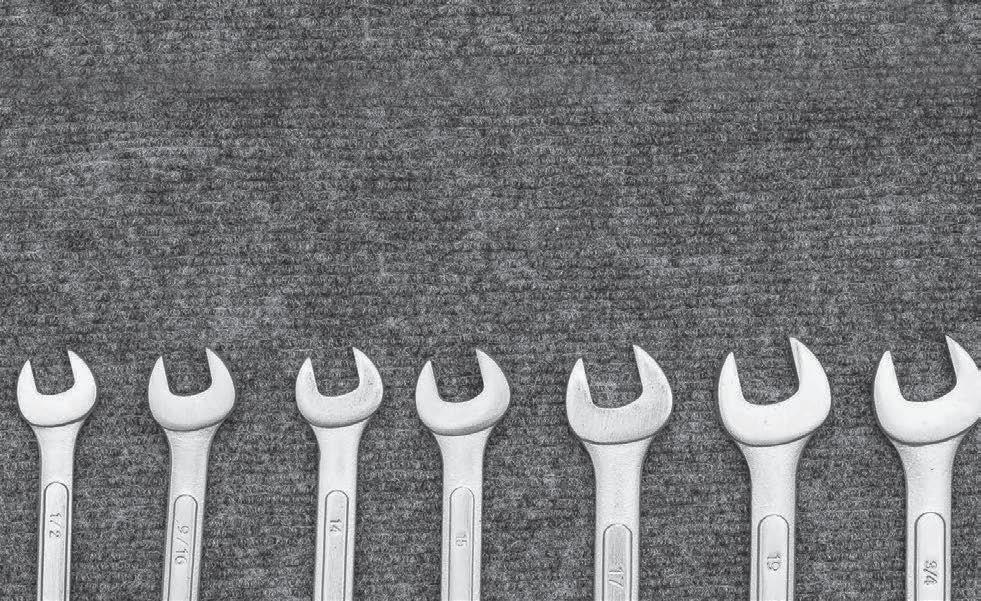












I have been relaying for about 9 years now. I started relaying because my mom and dad had cancer. I continue relaying for those who had cancer, those that have cancer, and those who will get cancer.
Sheldon
I have been relaying for about 20 years in honor and in memory of family & friends. I feel it is an important cause to help bring awareness and to help fund research for new medicines and cures.
Kathy Beaudoin –Event Lead Team Member
I started relaying about 21 years ago, I started off as a team captain when I worked for Tendercare and then my niece was diagnosed with cancer in 2002 and then we formed Kailea’s team, and I continue to participate as part of the event lead team each year. Relay has so much meaning to me as each year as we remember and honor those who continue to be here with us and those we have lost to cancer. If you have never been to the event, I invite you to attend as it is amazing to see all the survivors and be there to Celebrate them that day and then in
the evening it is beautiful to see all the luminary bags lit up around the track as we get to honor and remember our family and friends.
The relay has so many meanings we raise funds to help the American Cancer Society to be able to transport people, offer lodging, camps, research and for one day to have a cure. It also touches my heart deeply as Cancer has touched my life over the years in many ways as I have lost many family and friends to it and continue to watch many family and friends on the journey today and I always want them to know they are loved and that they don’t have to be on the journey alone. If you want to learn more about how to be part of the Relay for Life of Northeast Michigan please reach out to Kathy at 989-9167051 or Bonnie at 989-590-3843.
Andrea “Annie” Hepburn –Event Lead team Member
I have been relaying for The American Cancer Society for almost 20 years. I drove past the event for 2 years but didn’t stop and see what it was all about. Then my cousin/friend who was my age that I grew up with ended up getting cancer and passing away from it. The next year I checked out the event and I have been


here every year since. I will always be part of Relay because I believe in the American Cancer Society and the research they are doing fighting can cer. So much has changed over the past 20 years. I have lost many family mem bers and friends because of Cancer. I have also met so many wonderful people through this event that have fought and won their fight. Research is the hope of more lives being saved. Any questions you have there is someone on the other end of the phone line anytime day or night that can answer your questions & fear. If you just stop in and walk around at the Relay event, you will see what I did so long ago.
Bonnie McEachern –Event Lead Team Member
I relay because it is fun. It allows me to celebrate those fighting and remember those who have lost their fight.
Michelle Ciarkowski –Team Member (Not in photo)



When I was asked to share my cancer story, I was reluctant to do so. I am usually pretty private about my experience. In comparison to what I have seen as other people’s journeys, my surgical intervention seems so much less than what they have endured. But my journey wasn’t and isn’t easy...
In my short time working at Friends Together (a non-profit cancer support organization) I have seen others like me who discount or minimize what they have gone through and how it has impacted them because their experience “wasn’t as bad” as someone else’s. While I don’t always practice what I preach, I think it’s important for people to know that no matter what experience that they have had with cancer, that their story is theirs to share and their feelings are valid. That is why I have decided to step up and share this with you now.
In September of 2019, I was hospitalized for an acute illness related to congenital defect. I had a CT scan to check what was going on in that area and coincidentally the scan revealed something in a completely different area. I had some spots on my lungs. The medical team at the hospital said they were more focused on the acute issue, but I would need to follow up with my primary care provider. Until then, I was told not to worry.
At the follow up with my primary care provider, I was set up with an appointment for pulmonology and a PET scan was ordered. This was out of an
abundance of caution. I personally had never been a smoker and was not considered high risk. I was told to not worry.
My PET scan was October 31, 2019. Not too long after the pulmonologist shared the results. One of the nodules lit up on the scan. I was told it could be a “low level malignancy” but they wanted to rule out more likely causes like infection before they moved forward with a biopsy. I had never been a smoker and did not have other high risk factors.
After extensive testing ruling out other conditions that could have caused the PET scan results, it was decided that a biopsy should be done. The nodule was small and in a tricky place. There was some disagreement between the thoracic surgeon and the pulmonologist about who should do the procedure and where it should be done. November turned to December and still I waited (while making lots of follow up phone calls).
It was an extra emotional holiday season. I didn’t feel that I had any answers and was feeling frustrated by reassurances to not worry. Something was there. Tests ruled out other things. I was worried. My mind whirled with what ifs…
On New Year’s Eve, I (very uncharacteristically) got drunk. We’re not going to talk about those stories. We are in 2020 now and I finally had a visit with surgeon who scheduled the biopsy for February.
I recall on the trip downstate later that month to see the surgeon for the biopsy results, thinking that I need to take a deep breath and stop worrying. I was letting my mind get the best of me. I was not high risk…
With my husband next to me, the surgeon took my hand and told me that the biopsy showed neuroendocrine cancer. Surgery was scheduled for March 12th. The lower lobe of my
right lung would need to be removed.
I was no longer frustrated by the waiting. I was now overwhelmed by the diagnosis and the speed at which things now seemed to be progressing.
On the way to the hospital the day before my surgery, my husband I were listening to the latest reports about the spread of COVID. It was inconceivable at the time how this would impact me.
All went well with the surgical procedure but I quickly found out that I was not as bad ass I thought I was. My “I can handle anything attitude” was told to take a seat by the pain. In order to remove the section of lung, the surgeon needed to cut the nerve bundles between three different ribs. And the chest tube that was jammed between two of them was excruciating. I had always prided myself on my toughness. Two c-sections and a hysterectomy. No problem. Just give me a couple of ibuprofen and move on. This was not like what I was expecting. This was hard.
I was able to see my children after I got out surgery though. They both planned on coming back to see me the next day when I was a little more alert. But due to the emerging pandemic, by the next day the hospital allowed only one visitor. I was disappointed but comforted by the fact that I was still able to have my husband by my side. By the day after that, the hospital was shutting down to all visitors. I remember the nursing staff telling my husband he might have to hide in the bathroom. The surgeon said he was concerned about the high level of COVID in the hospital and wanted to minimize my risk. They were discharging me home. While the nursing staff were getting me ready to leave, my husband having seen reports of hoarding, went to look for toilet paper - unsure if he’d be able to get back into the building. (In case you were wondering, he did not. Security had the place shut down like Fort Knox.) Recovery was difficult during the pandemic. I was very isolated. My medical team now deemed me high risk. We didn’t know as much as we
do now in those early days. People who would have normally came to visit to share their support could not come. Masks and hand sanitizer were hard to come by. I was advised not to go anywhere. When I was finally released to return to work it was only under the condition that I work from home. There is definitely something to be said about the healing power of being with others.
Ultimately, the surgery was a success. Margins were clear and all lymph nodes taken were good. I do have tiny nodules that remain in my left lung. I am followed by an oncologist and go for blood work and a scan every six months to a year to monitor both the right lung where the lobe was removed and to watch for changes in those nodules remaining on the left that are considered too small to classify.
I still have some nerve pain and can get short of breath, but I feel very fortunate. Had this not been caught very early (and quite by accident) the outcome could have been very different. This year is my 5th Lungiversary. (Every year I remind my family that presents are welcome.)
However, the title of survivor still seems awkward to me. I still do look at others who have or who are still enduring harsher treatments of radiation and chemo and feel like I have gotten off easy. But I am learning to have a little grace with myself... My take-aways from my experience so far?
Advocate for yourself. In any situation where you feel something isn’t right or sitting well with you, it is okay to ask questions of your medical team. Don’t minimize or dismiss your experience. Your story is yours to tell and any feelings you have are valid. Cancer is hard for everyone. Not giving a voice to your journey doesn’t erase it.
Try your best to surround yourself with others who can support you emotionally. Never underestimate the power of positivity and community.
Malinda Amlotte – Survivor
When asked to tell my story, I thought, what should I say? So many deep emotions are involved in this journey. It is hard to believe that a year has gone by already.
In March 2024, after my MRI, I learned it had shown a lesion in the right frontal lobe of my brain. To say I was shocked was an understatement. Fast forward just a couple months and the decision to move forward with a craniotomy was made. This decision didn’t come lightly, but with the family history of brain cancer in our family it seemed to be the right choice. Surgery was extremely scary and my emotions were high, but I was very confident in Dr. Thomas. He has been truly phenomenal. On June 10, 2024 I had resection and removal of the tumor. It was then sent to lab for testing to determine final diagnosis. Just a few weeks later I was notified the results were in. The diagnosis, WHO Grade 2 Oligodendroglioma.
Wow! I couldn’t believe. This was actually happening to me. But I was so thankful and continue to be grateful for all of my family and friends. Without their love, strength, support and prayers my recovery would not have been possible. All they have done will never be forgotten.
So what is next, that is always the question right?!?!
So for me, I will continue with every 3 month MRI screenings. The next one is in April. This close monitoring will hopefully ensure that progression of the cancer is caught early, just like this time. I have been told by all of the doctors that there is no cure for this cancer, but the progression is slow. It will come back at some point, but I still have tools in my toolbox so to speak. Another surgery is inevitable and most likely chemo and radiation. Each of these treatments hopefully bring many years of life left to live.
I will continue to be monitored by Dr. Thomas in Petoskey as well as with Dr. Fortunato at U of M and will move forward as directed by them.
In closing, what I would say to others going through an experience similar to mine. Be your best everyday. The unknown is the hardest part. I often think about who will take care of me when the time comes, will I get to continue to do all of the things I love to do, will I see my kids and grandkids for years to come, and the list goes on. Each day I continue to keep a positive attitude and outlook on life. I am here now. I can’t stress enough how important
having a strong support system is when you are healing and going through this journey. I am so lucky to have my friends, family, cancer support group, Friends To gether, and many hobbies to keep go ing. Also, my incred ible faith in God.
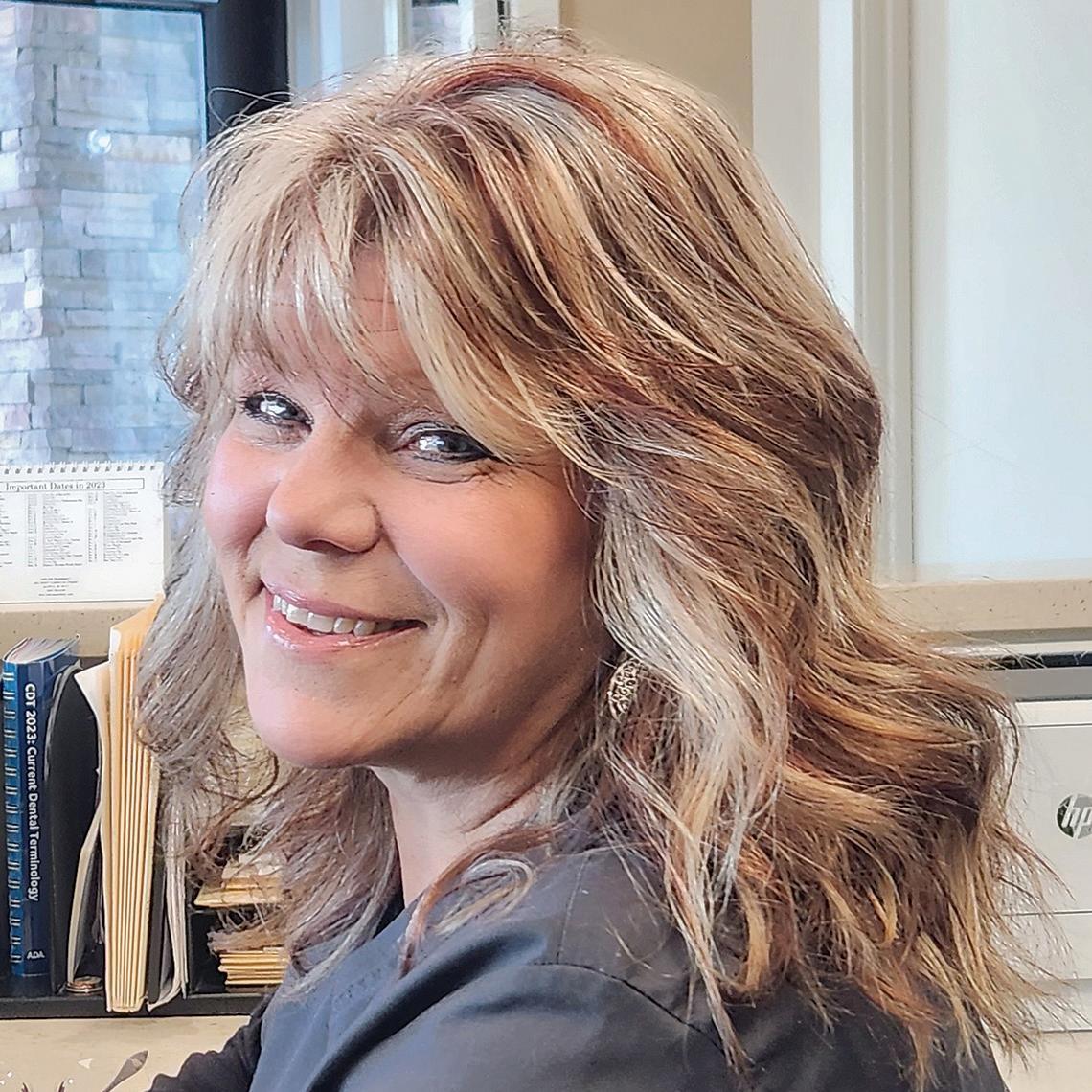
Thank you for taking time to read my story. Never hesitate to ask questions when you see me. I am always willing to share more of the story I am living.
Anne, Annie, Annabelle, Aunt Annie, Sis, Boosh, Mom (all the names I am called by my most treasured friends and family).
Anne Timmreck – Survivor
a better hearing experience, you need Integrated Xperience.
the hearing aids that 94% of wearers report excellent speech understanding.*

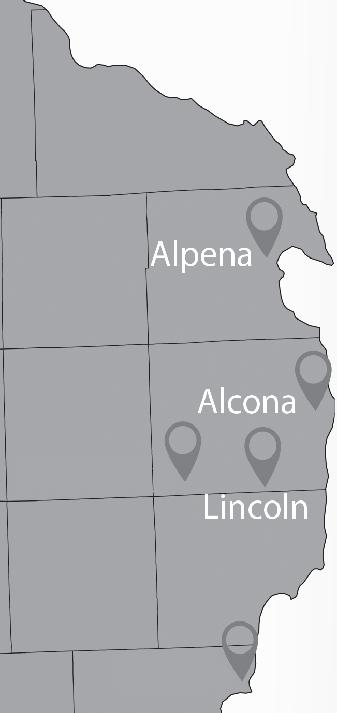
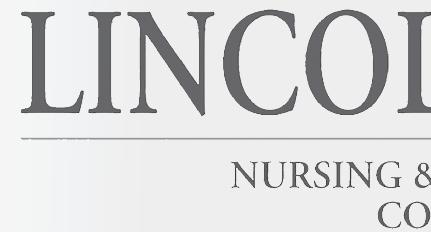




With RealTime Conversation Enhancement, your hearing aids can now enhance and follow multiple conversation partners simultaneously, even as they move or you turn your head. Available in our discreet Pure Charge&GO IX models. ‘
To learn more, call us today and schedule your free, no-commitment demonstration! 989-3S4-4289





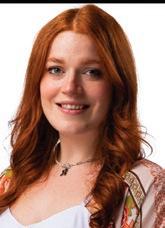
•

for investing in our mission to end cancer as we know it, for everyone.
GIVE WITH CONFIDENCE
81%
The American Cancer Society (ACS) is proud to hold top ratings from widely recognized and respected charity rating and watchdog groups, demonstrating our continuing commitment to accountability, transparency, and ethical practices.
Every year, 81% of our expenses go directly to fund our mission to improve the lives of people with cancer and their families through advocacy, research, and patient support, to ensure that everyone has an opportunity to prevent, detect, treat and survive cancer
You can give with confidence knowing that we have been independently evaluated for effectively stewarding donations
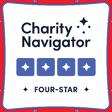



$515 MILLION & 866 GRANTS invested in cancer research (2/2/25)
were awarded, starting 1/1/25, to cancer researchers for a total investment of $13M to 21 ACS-funded grants across the state
- Partnered w/ NFL Crucial Catch & Arab Community Center for Economic and Social Services (ACCESS) to implement a $20,000 grant focusing on Breast Cancer screening & prevention
- Worked w/ Henry Ford Health & the Wellness Plan (FQHC) to implement a $200,000 NFL Links to Care grant focuses on Breast Cancer screening & timely follow-up care.
Together, w/ 30 community ambassadors, we launched the nationwide VOICES of Black Women Cohort study in MI, which aims to directly improve the health of black women for generations.
$263,000 AWARDED in transportation and lodging grants to 10 Michigan health systems in 2024 to help reduce barriers to treatment for cancer patients
1,705 RIDES TO TREATMENT
provided to 166 patients in Michigan through our Road to Recovery program. 171,535 rides to 6,219 patients nationwide
5,322
provided to MI residents at our Hope Lodges traveling for treatment & 58 MI residents access to lodging through Extended Stay America
15,424
impacted by efforts of ACS partnerships w/ 176 health partners across the state, including the MI Dept of Health, insurance providers, hospital systems, FQHCs, & community-based health orgs.
with more than 192,893 support inquiries through our 24/7 helplines.
•
•
Shared Room Opening For Female Resident.




One that can directly improve the health of Black women for Black Women, a groundbreaking initiative led by the calling on Black women from all walks of life to join the study; it's a collective commitment to understanding and women across the nation. And that change starts with you.

simple: Your voice has the power to change lives for future generation. By taking part in furthering our ongoing studies, you become an essential part movement dedicated to shaping a healthier future for Black women. As a leader in the population studies field of research for generations, our researchers at the American Cancer Society are all ears, listening to your experiences and insights.
Not just any kind of change: One that can directly improve the health of Black women for generations to come. VOICES of Black Women, a groundbreaking initiative led by the American Cancer Society, is calling on Black women from all walks of life to join the movement. This isn’t just a study; it’s a collective commitment to understanding and improving the health of Black women across the nation. And that change starts with you.
WHO CAN JOIN?
We are looking for the unique perspectives of Black women age 25-55 with no history of cancer (except basal or squamous skin cancer), who are living in the United States.
WHY JOIN US?
Participants use a private VOICES website to access our online surveys. The first survey takes about an hour, followed by brief check-ins at least twice a year to help us gather meaningful insights into Black women's health.
WHAT IS
Participants use a private VOICES website to access our online surveys. The first survey takes about an hour, followed by brief check-ins at least twice a year to help us gather meaningful insights into Black women’s health.

Not just any kind of change: One that can directly improve the health of Black women for generations to come. VOICES of Black Women, a groundbreaking in American Cancer Society, is calling on Black women from all wal movement. This isn't just a study; it's a collective commitment improving the health of Black women across the nation.

WHO CAN JOIN?
of Black Women.
It’s simple: Your voice has the power to change lives for future generation. By taking part in furthering our ongoing studies, you become an essential part of a movement dedicated to shaping a healthier future for Black women. As a leader in the population studies field of research for generations, our researchers at the American Cancer Society are all ears, listening to your experiences and insights.
We are looking for the unique perspectives of Black women age 25-55 with no history of cancer (except basal or squamous skin cancer), who are living in the United States.
WHY JOIN US?
It’s simple: Your voice has the power to change lives for future generation. By taking part in furthering our ongoing studies, you become an essential part of a movement dedicated to shaping a healthier future for Black women. As a



American Cancer Society (ACS) and the ACS National HPV Vaccination Roundtable (HPVRT) are rural healthcare partners to join a collaborative learning community aimed at connecting partners and improving on-time HPV vaccination rates among adolescents aged 9–13.
The American Cancer Society (ACS) and the ACS National HPV Vaccination Roundtable (HPVRT) are inviting rural healthcare partners to join a collaborative learning community aimed at connecting partners and improving on-time HPV vaccination rates among adolescents aged 9–13.

Most patients will be exposed to HPV:

The 2025 learning community will offer virtual sessions and peer-based learning to enhance vaccine rates through quality improvement (QI) methodologies and evidence-based practices. Building on the success of 2024, this no-cost, hands-on forum will explore new areas of HPV vaccination, including addressing vaccine hesitancy, closing gender gaps, utilizing trusted messengers, and improving vaccine reimbursement. Participants will continue to gain knowledge, share best practices, and discuss challenges in increasing HPV vaccinations in rural communities.
Recent data indicates that HPV-related cancers in rural communities have risen by 18% in recent years.
HPV is highly common and has emerged as a significant public health threat. Recent estimates show that the direct costs of HPV total $9 billion annually, yet 90% of these costs could be prevented with the HPV vaccine.
There are 4 million adolescents living in rural communities, yet they lag more than 10% behind their urban peers in HPV vaccine uptake. adolescent immunization performance.


Preventing HPV-related pre-cancers and cancers
Reduced costs
Most patients will be exposed to HPV:
Most patients will be exposed to HPV:
Data-driven insights and best practices
QI coaching & support
Technical assistance
Increased HPV cancer incidence Lower vaccination levels
Describe how to increase on-time HPV vaccination rates in rural communities
Increased HPV cancer incidence
HPV is highly common and has emerged as a significant public health threat. Recent estimates show that the direct costs of HPV total $9 billion annually, yet 90% of these costs could be prevented with the HPV vaccine.
Access to ACS & HPVRT resources and materials
Networking with peer organizations
Learning from subject matter experts
Practical implementation tips
Opportunity to showcase success
Recent data indicates that HPV-related cancers in rural communities have risen by 18% in recent years.
Recent data indicates that HPV-related cancers in rural communities have risen by 18% in recent years.
Lower vaccination levels
Review quality improvement tools like AIM statements, process mapping, and gap analysis to identify areas to improve HPV vaccination rates in organizations
Improve HEDIS IMA/CHIP metrics:
There are 4 million adolescents living in rural communities, yet they lag more than 10% behind their urban peers in HPV vaccine uptake.
learning community will offer virtual sessions and peer-based learning to enhance vaccine rates through improvement (QI) methodologies and evidence-based practices. Building on the success of 2024, this no-cost, forum will explore new areas of HPV vaccination, including addressing vaccine hesitancy, closing gender utilizing trusted messengers, and improving vaccine reimbursement. Participants will continue to gain knowledge, share best practices, and discuss challenges in increasing HPV vaccinations in rural communities. Payors may tie incentives to improvements in adolescent immunization performance.
Date: 2nd Wednesday of every month (March -December)
Time: 2-3pm EST
The American Cancer Society (ACS) and the ACS National HPV Vaccination Roundtable (HPVRT) are inviting rural healthcare partners to join a collaborative learning community aimed at connecting partners and improving ontime HPV vaccination rates among adolescents aged 9–13.
Improve HEDIS IMA/CHIP metrics: is highly common and has emerged as a significant public threat. Recent estimates that the direct costs of HPV $9 billion annually, yet 90% these costs could be prevented with the HPV vaccine.
List evidence-based interventions to increase HPV vaccinations in your community
Compare best practices and challenges in increasing HPV vaccinations in rural settings
There are 4 million adolescents living in rural communities, yet they lag more than 10% behind their urban peers in HPV vaccine uptake.
Registration is on a rolling basis; participants can join at any time throughout the year.
Payors may tie incentives to improvements in adolescent immunization performance.
Cost: Free to attend
Preventing HPV-related pre-cancers and cancers
Reduced costs
Data-driven insights and best practices
Location: Virtual via Zoom meeting Register here
coaching & support
Technical assistance
cancer.org 800.227.2345
Once registration has been completed. Zoom will automatically send a calendar invite series.

Describe how to increase on-time HPV vaccination rates
Access to ACS & HPVRT resources and materials
Questions? Please reach out to Ashley Lach, HPV Program Manager
Practical implementation tips
Networking with peer organizations
Email: Ashley.Lach@cancer.org
Opportunity to showcase success
Learning from subject matter experts
Life - Wednesday, March 5, 2025
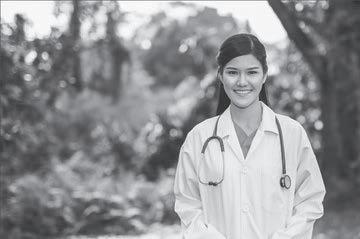
Review quality improvement tools like AIM statements, process mapping, and gap analysis to identify areas to improve HPV vaccination rates in organizations List evidence-based interventions to increase HPV vaccinations in your community
Review quality improvement tools like AIM statements, process mapping, and gap analysis to identify areas to improve HPV vaccination rates in organizations List evidence-based interventions to increase HPV
Describe how to increase on-time HPV vaccination rates in rural communities
The 2025 learning community will offer virtual sessions and peer-based learning to enhance vaccine rates through quality improvement (QI) methodologies and evidencebased practices. Building on the success of 2024, this no-cost, hands-on forum will explore new areas of HPV vaccination, including addressing vaccine hesitancy, closing gender gaps, utilizing trusted messengers, and improving vaccine reimbursement. Participants will continue to gain knowledge, share best practices, and discuss challenges in increasing HPV vaccinations in rural communities.
Compare best practices and challenges in increasing HPV vaccinations in rural settings

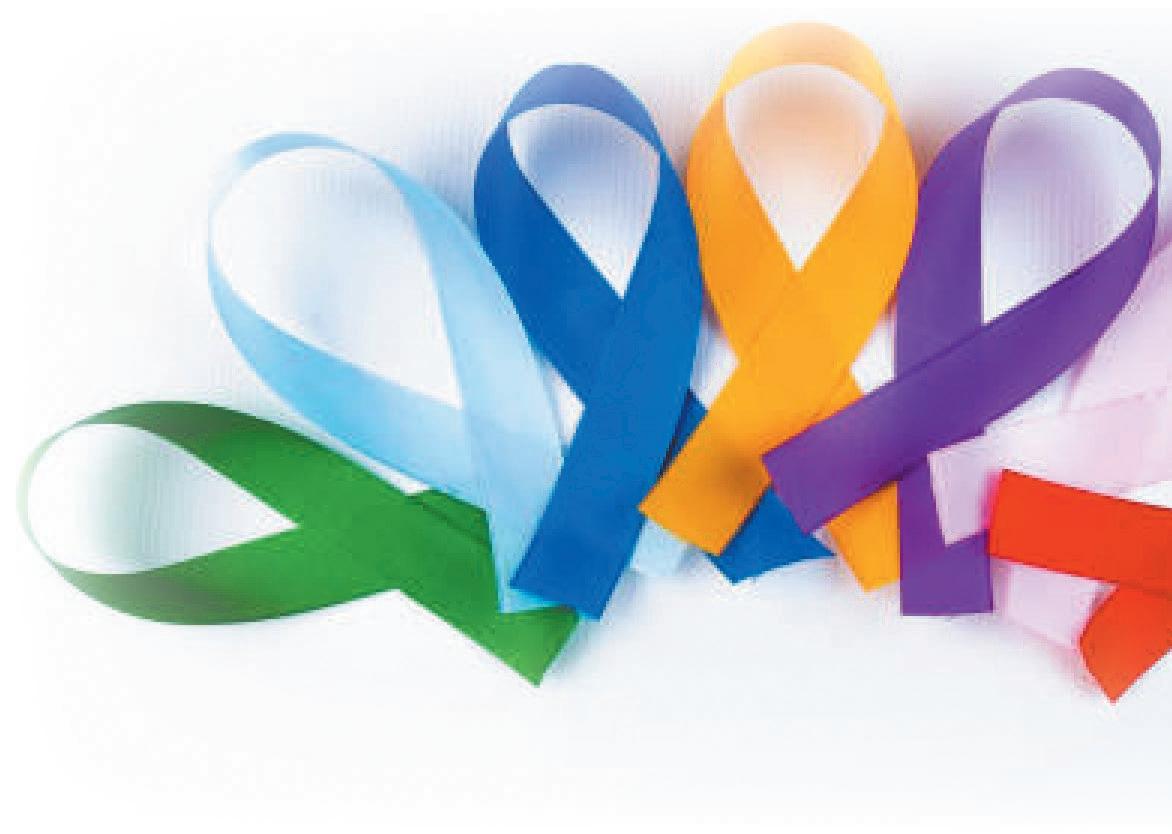

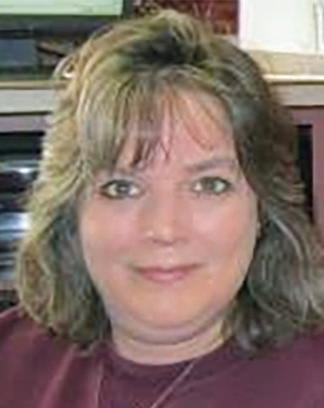
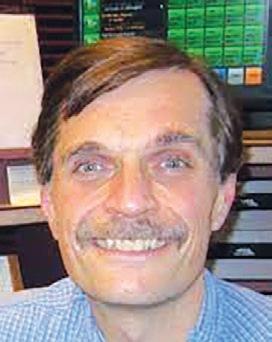
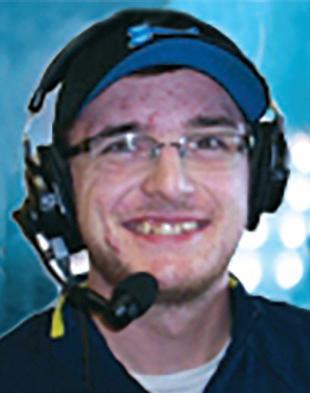


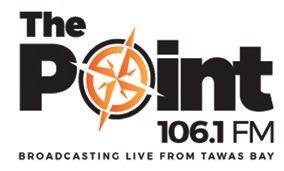
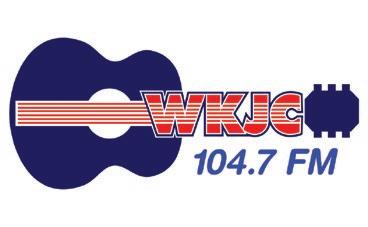
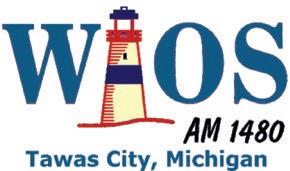

Alpena County Library - Judith Stillion Room 211 N. First Ave, Alpena MI 49707
2nd Thursday of Every Month 1:00 - 2:00 p.m.
For more information call the Alpena Senior Citizen Center 989-356-3585 and ask for Annie
Kinship care is when a child is raised by a relative, such as a grandparent, aunt, uncle, or both family members or member, when their parents are unable to care for them, essentially providing a child with a stable home environment within their family network.
Support, Resources, Speakers and More
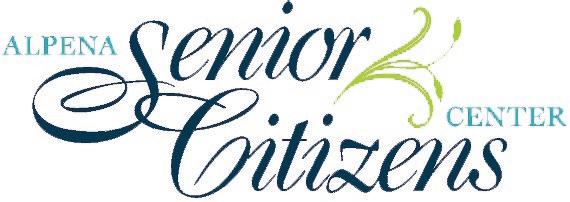



This program funded in part with funds through the Older Americans Act, Aging and Adult Services Agency of the Michigan Department of Health and Human Services and Region 9 Area Agency on Aging.
We meet the first and third Thursday of the month from 4:00 - 5:00 p.m. at the Alpena Senior Center.
Dementia can be an emotionally taxing condition for both the individual diagnosed and their loved ones. Support groups offer a safe space for participants’ feelings, concerns, and frustrations without fear of judgment. Sharing experiences with others who understand what they’re going through can provide a sense of validation and relief.
You Are Not Alone can play a vital role in providing emotional, practical, and social support to you. By fostering a sense of community, sharing information and experiences, and offering mutual encouragement, together we can enhance the quality of life for all involved.
